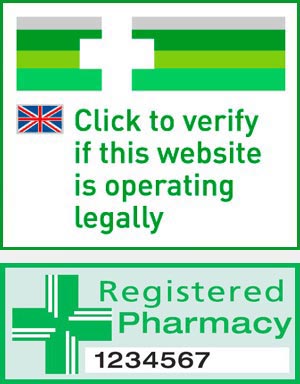Counterfeit Medicines
What are counterfeit medicines?
Counterfeit medicines are “fake” medicines that are often produced in unsafe and unsanitary conditions. This means they are not inspected by regulatory authorities, making it impossible to know what ingredients the counterfeit medicines contain.1
What are the dangers?
Counterfeits can be very dangerous and are a serious public health risk. The primary danger in taking a counterfeit medicine is that you are putting something into your body that may not help your current condition and, more alarmingly, could result in harmful effects to your overall health.1
Experts at Pfizer have found harmful substances in counterfeit medicines including boric acid, leaded highway paint, floor polish, brick dust and heavy metals.2
Scale of the problem
The Department of Health and Social Care has reported a general increase in the number of people using the internet to purchase all commodities and there is a corresponding increase in the number of people using the web to self-diagnose and self-prescribe.3
As of December 2022, counterfeit versions of 51 Pfizer medicines have been detected in the legitimate supply chain of more than 60 countries, including the US, Canada and the UK.4 Pfizer have worked to combat this issue by training law enforcement agencies in 182 countries, helping to prevent over 300 million counterfeit doses reaching patients, since 2004.4
Medicines on the internet
 Consumers should be cautious as medicines obtained through unregulated and unregistered internet sites or via social media are not made by trained scientists under the rigorous conditions required for patient safety. This therefore poses a potentially serious health risk.
Consumers should be cautious as medicines obtained through unregulated and unregistered internet sites or via social media are not made by trained scientists under the rigorous conditions required for patient safety. This therefore poses a potentially serious health risk.
All pharmacies operating in Great Britain must be registered with The General Pharmaceutical Council (GPhC), who also operate a voluntary internet pharmacy logo scheme. The logo helps consumers to identify legitimate online pharmacies so that you can be sure you are purchasing safe and genuine medicines online. The GPhC logo contains the pharmacy’s unique seven-digit registration number, and when clicked takes the user to the Royal Pharmaceutical Society of Great Britain (RPSGB) website to help verify the pharmacy.5
Pharmacies operating in Northern Ireland (and in the EU) must be registered with the Medicines and Healthcare products Regulatory Agency (MHRA) as an online seller. Additionally, sellers in Northern Ireland must display the 'Distance Selling Logo' on every page of the website where medicines can be purchased.6
*Look for the 'distance selling logo' (top) or the 'voluntary GPhC internet logo' (bottom) when ordering online.
What is Pfizer doing about counterfeit medicines?
For Pfizer, counterfeit medicines are a matter of patient health and safety and it is an issue we take very seriously. Our aim is to help detect, disrupt and deter illegal, counterfeit medicines.
We are working with governments, regulators, police, and customs around the world to warn people about the dangers of buying online and to catch the criminals responsible.
Detect
Suspected counterfeit medicines that have been intercepted around the world are tested in counterfeit labs. Forensic scientists provide expert analysis of suspected counterfeit medicines and deliver reports that can aid prosecution.
Disrupt
Working relationships are developed with law enforcement agencies, as well as regulatory and health authorities.
Deter
In addition to counterfeit drug testing, globally, the implementation of new technology, such as special packaging security7, and ingredient identification techniques that make counterfeits both more difficult to make and easier to spot, are being explored.
What should you do if you suspect a medicine may be counterfeit?
It is important to note that all prescription medicines should only be used as prescribed by, and under the supervision of, a qualified healthcare professional. When purchasing medicines online you should be mindful to only choose a pharmacy or online retailer that is registered with the MHRA or Royal Pharmaceutical Society of Great Britain.6 If you are worried or suspect a medicine to be counterfeit, please contact the MHRA via the Yellow Card scheme;
Online: https://yellowcard.mhra.gov.uk/
Telephone: 0800 731 6789 (9am to 5pm Monday to Friday)
Via the Yellowcard Scheme App
PRODUCTS
Our industry is regulated by a number of official bodies who evaluate the quality, efficacy and safety of medicines and vaccines.
References
- World Health Organization. Substandard and falsified medical products. Jan 2018. Accessed April 2024.
- Pfizer data on file 2019. Accessed April 2024.
- Department of Health. Counterfeit Medicines Accessed April 2024.
- Pfizer data on file 2023. Accessed April 2024.
- General Pharmaceutical Council. Internet Pharmacy Accessed April 2024.
- Medicines and Healthcare products Regulatory Agency (MHRA). Register of authorised online sellers of medicines Accessed April 2024.
- EPR, Packaging security trends in the pharmaceutical industry. December 2019. Accessed April 2024.